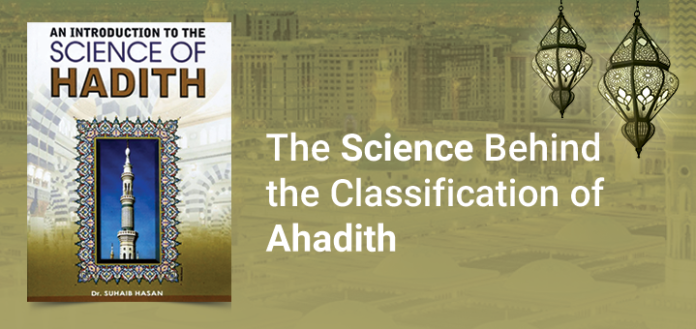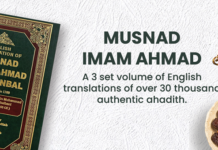Have you ever wondered how ahadith are classified? How and when did the process of documenting hadith begin? This blog hopes to answer all these questions.
When Allah Almighty sent Syyadna Adam to this earth, he commanded him:

This is the historical background and the beginnings of the divine revelations and commands that Allah sent to His messengers in different periods. Without Messengers, people would not be able to know their identity, the purpose of their creation, their livelihood, their lifestyle, and so on.
If you know about the theories about human history, you will know that all these theories have been introduced only by those who have not been linked to Allah’s revelation and His commandments. If these people had followed the revelation, they would not have needed these ideas rather they knew the facts very early.
The commands and even hadith that Allah has given to us human beings have two main purposes. On the one hand, these human beings, as creatures, remain to pay homage to their Creator, Allah Almighty, and remain to worship Him, and on the other hand, they should be taught the rules and regulations of living on this earth so that they may avoid ignorance, oppression, and sin. As a result, they would succeed in the hereafter and enter the paradise of Allah.
The Holy Quran reveals this fact that when humans started spreading mischief on this earth and started committing the greatest sin ever, i.e. polytheism, then Allah Almighty sent His first messenger, the Prophet Noah (peace be upon him) to his people to warn the people about the torment of Allah Almighty and to give them the good news of Paradise from which their forefather, Sayyadna Adam was expelled.
The Holy Quran mentions that this chain of messengers remained till Allah’s last messenger Muhammad ﷺ and there would not be another messenger after Muhammad ﷺ till the day of judgment.
Of all these prophets and messengers عليهم السلام, some were given books by Allah, some were given scriptures, and some were given commands only through revelation which was not in written form. Allah Almighty also bestowed miracles on all of them according to the requirements of their time and place.
All Muslims believe that the Holy Prophet Muhammad ﷺ is the last Messenger of Allah Almighty and no other Messenger will come after him. In this sense, the religion of the Prophet ﷺ is a guide for the people till the Day of Resurrection. This means that the teachings and hadith of the Prophet ﷺ are so comprehensive that this religion would solve the needs and problems of all kinds of people from various fields of life. This has been happening for the last fourteen hundred and fifty years and will continue till the Day of Judgment.
Allah Almighty says about the Prophet Muhammad ﷺ:
لَقَدۡ مَنَّ ٱللَّهُ عَلَى ٱلۡمُؤۡمِنِینَ إِذۡ بَعَثَ فِیهِمۡ رَسُولࣰا مِّنۡ أَنفُسِهِمۡ یَتۡلُوا۟ عَلَیۡهِمۡ ءَایَـٰتِهِۦ وَیُزَكِّیهِمۡ وَیُعَلِّمُهُمُ ٱلۡكِتَـٰبَ وَٱلۡحِكۡمَةَ وَإِن كَانُوا۟ مِن قَبۡلُ لَفِی ضَلَـٰلࣲ مُّبِینٍ
Indeed, Allah has done the believers a ˹great˺ favor by raising a messenger from among them—reciting to them His revelations, purifying them, and teaching them the Book and wisdom. For indeed they had previously been clearly astray.
(آل عمران: 164)
This verse reveals that Allah’s Messenger ﷺ was given two things, the book and al-Hikmah. “The book” means Allah’s last book, the Holy Quran, and “al-Hikmah” means the Prophet’s ﷺ Sunnah which is also referred to as his Ahadith.
Here it is necessary to mention that the enemies of Islam are always keen to cast aspersions upon the religion of Allah in various ways and by various means. They spread their specious arguments and misguidance among ordinary Muslims and are eventually followed by some of those Muslims who are weak in faith or ignorant.
If one of these ordinary people were to give the matter a little thought, he would realize that their specious arguments are invalid and their argument is worthless.
One of the easiest ways in which the ordinary Muslim can refute this flimsy specious argument is to ask himself: How many rak‘ahs do I pray in Zuhr? What is the minimum threshold at which Zakat becomes obligatory? These are two simple questions that no Muslim can do without knowing the answer to, but he will never find the answer to them in the Book of Allah.
This is where the role of the hadith comes in. We will find that Allah instructed us to pray and He instructed us to give zakaah, but how can he carry out these commands without looking to the Prophet’s Sunnah and hadith? This is impossible. Hence the Quran needs the Sunnah more than the Sunnah needs the Quran As Imam al-Awza’i رحمه الله said:
“The Book (the Holy Quran) needs the Sunnah more than the Sunnah needs the Book.”
(Reference: al-Bahr al-Muheet by az-Zarkashi (6/11); quoted by Ibn al-Muflih al-Hanbali in al-Aadaab ash-Shar‘iyyah (2/307) from the Tabi’i Makhool.)
The Sunnah (Hadith) was not recorded during the time of the Prophet ﷺ just as the Quran was written. Rather, it was preserved in the books, and the Companions transmitted it verbally to those who followed after them, except for some of the companions that had newspapers in which they recorded some of what they heard from the Messenger of Allah ﷺ. Abdullah bin Amr, and Omar bin Al-Khattab رضي الله عنهما thought of writing the sunnah (hadith) down but then changed their mind.
The first person to order to collect them was Umar bin Abdul Aziz رحمه الله, and he sent to Abu Bakr bin Hazm رحمه الله his handler and judge over to Madinah, and said: See what was from the hadith of the Messenger of Allah ﷺ and write it, for I feared the loss of knowledge, and passing the scholars away.
But he (Abu Bakr bin Hazm رحمه الله) did not record all of the Sunnah and ahadith that were in the city of Madina, this was done by Imam Zuhri رحمه الله. He was a contemporary of Umar bin Abdul Aziz رحمه الله and he (Umar bin Abdul Aziz) used to advise his sitters to go to him because there was no one left on the face of the earth who knew the Sunnah better than him, so he wrote down all the hadiths and sayings of the Companions of the Holy Prophet ﷺ. Thus Al-Zuhri was the first to lay the foundation stone in the codification of the Sunnah, then the codification became popular in the next generation of Al-Zuhri.
So, after Imam Zuhri رحمه الله, hadith was collected in Makkah city by Ibn Juraij, Ibn Ishaq, and in Medina city by Saeed Ibn Abi Orouba, Al-Rabee`, Imam Malik, and in Basra city by Hammad, And in Al-Kufa city by Al-Thawri, in Al-Sham (Syria) Al-Awza’i, and so on.
Then came the third century, and it was the brightest of the ages of the collection of the Hadith. Then the Musnad was classified as the Musnad of Imam Ahmad, the Musnad, and Ishaq bin Rahwayh, then the Sahih: Bukhari and Muslim, then the Sunnah were compiled by Abu Dawud, Al-Nasa’i, Ibn Majah, and Tirmidhi.
Since the teachings of the Holy Prophet ﷺ belong to all aspects of human’s life, these scholars classified all the sayings of the Holy Prophet ﷺ into eight major topics:
- Commandments
- Virtues
- Biographies
- Etiquettes
- Interpretation of the Quran
- Trials
- Softeners
- Beliefs
The book which consists of these eight topics is called Jame`. These kinds of books cover almost all kinds of hadith and sayings regarding every aspect of life.

- Al-Jawami` (sing: Al-Jami`): Every book in which its author collects all the chapters of Commandments, Virtues, Biographies, Etiquettes, Interpretation of the Quran, Trials, Softeners, Beliefs, Such as: “Al-Bukhari’s collection of authentic books named Sahih al-Bukhari.”

- Al-Masanid (Sing: al-Musnad): Each book in which the narrations of each of the Prophet’s ﷺ companions were collected separately, without looking at the topic in which the hadith relates, such as: “The chain of narrators of Imam Ahmad bin Hanbal.”
- Sunan: These are the books that are classified under the chapters of jurisprudence. To be a source for jurists in deriving the issues, these books differ from Jawami` in that there is nothing in them related to beliefs, biographies, virtues, etc which are found in Jawami`. but rather they are limited to the chapters of jurisprudence and hadiths of rulings. Such as Sunan Abi Dawood.

- Al-Ma’ajim (Sing: Al-Mu’jam): Each book in which its author collects the hadith in order of the names of his sheiks (from whom he learned, heard, or read the hadith), often in the order of the letters of the Arabic alphabets, like the three dictionaries of al-Tabarani, which are: the large, middle, and small lexicons.
- Al-’Ilal (sing: al-’illah): The books of al-ilal are the books that contain hadiths with explanations of their causes (causes of its weakness or goodness etc), such as: “al-ilal”; by Ibn Abi Hatim, and “Al-ilal”; by Imam Daraqutani.
- Al-Ajzaa (Sing: al-Juz): Every small book in which the narrators of hadith are collected, or it contains one topic for the sake of comprehsnion. For example Juz rafa ul-yadain fi-Salah, (“A Part on the topic of Raising the Hands in Prayer) by Imam Bukhari.”
- Al-Atraaf (Sing: Al-Tarf): A book in which the compiler only mentions a part of the hadith and then he mentions the isnads (chains of transmission) of each text, either absorbed or restricted to it by some books; For example: “Tohfa-tul-Ashraaf; by Imam Mizzi.
- Al-Mustadrakaat (Sing: Al-Mustadrak): Each book contains hadith that were compiled in other books but were not according to his conditions, such as Al-Mustadrak Ala Al-Sahihain (“Al-Mustadrak on the two Sahihs”;) by Abu Abdullah Al-Hakim.
- Al-Mustakhrajaat (Sing: Al-Mustakhraj): Every book in which its author has produced hadiths of a book to other authors with isnads for himself, other than the way of the first author, and perhaps he met with him in his sheikh or above, such as Al-Mustakhraj Ala Al-Sahihain (“The extracted on the two Sahihs”;) by Abu Na`aim Al-Asbahani.
Knowing this classification can help us understand the difference between the ahadith and how the chain of transmission occurs.
According to the correct belief of the Muslims, every sahih hadith is able to be acted upon. There are many sects that raise the issue of whether every sahih hadith should be acted upon or not. Some believe that if a hadith does not reach the limit of “mutawatir”, it will not be acted upon and will be rejected.
Some mention very hard conditions and believe that if these conditions are included in a hadith, it would be acceptable otherwise it would be rejected. All these theories have been rejected by the great and expert Imams of hadith.
Many Imams have classified hadith as sahih and date separately. In Sahih Bukhari, every “Marfu” hadith is authentic, in Sahih Muslim every hadith is authentic, in Muwatta Imam Malik, 99% of hadith are sahih, in Musnad Ahma, there are 30 thousand plus hadiths of which almost one-third are deaf, etc.
Among the recent Imams, there is also a very famous Imam of Syria, Shiekh Muhammad Nasir-ul-din Albani who has classified a large number of hadiths separately. His most famous books in this regard are Al-Sahihah and Al-Daeefah. In Al-Sahihah, he mentioned all sahih hadith with lard detail as well as in Al-Daeefah, he mentioned all non-authentic ahadith. Although there is also a large criticism of these books, yet they are still considered helpful.
Take a look at the hadith collection available at Darussalam Store.
Take a look at some of our bestseller ahadith collections.
Also Read: Early Muslim Contributions to Science & Medicine







































